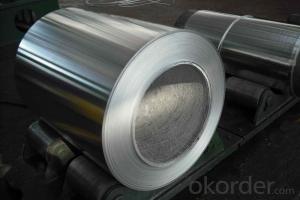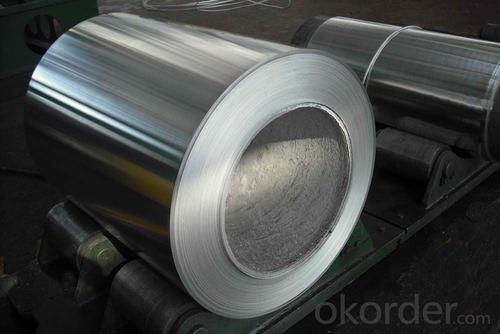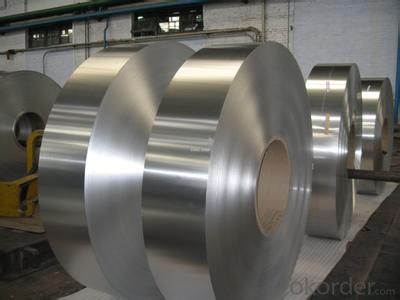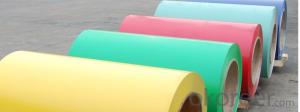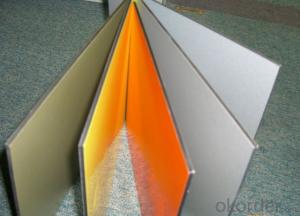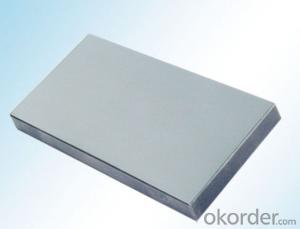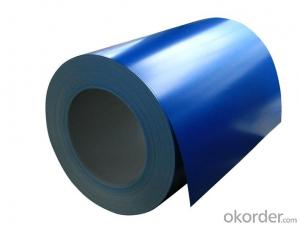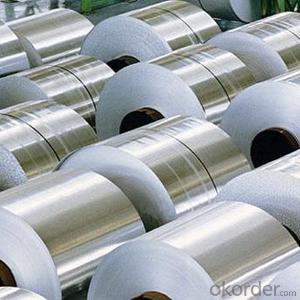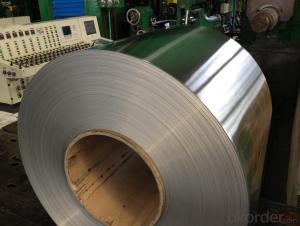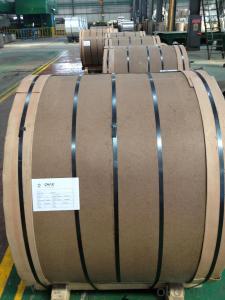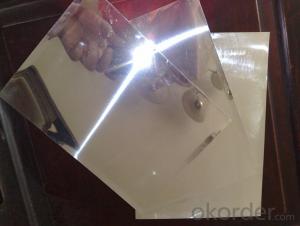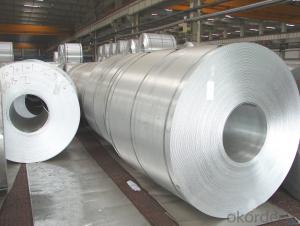Checkered Aluminum Sheets - Mill Finished Aluminium Coils for Wall Decoration AA3003
- Loading Port:
- Shanghai
- Payment Terms:
- TT OR LC
- Min Order Qty:
- 5 m.t.
- Supply Capability:
- 5000 m.t./month
OKorder Service Pledge
OKorder Financial Service
You Might Also Like
Specification
1.Structure of Mill Finished Aluminium Coils for Wall Decoration AA3003
Mill Finished Aluminium Coils for Wall Decoration AA3003 is one semi-finished aluminium material. This strip can be rolled down to aluminium coil,sheet,circle ect. The alloy AA1050 is widly used in building, industry ect. Its weight is much lower than steel. So many customers choosed aluminium material instead of steel.
2. Main features of Mill Finished Aluminium Coils for Wall Decoration AA3003
a.Competitive price---We have our own mills and can produce mill finished aluminium coils, so we can control the production cost better.
b.Professional after-sale service---We have more than 15 years exportation experience and you need not worry about the exporation problems.
c.Fast delivery time---We can control the delivery time within 35 days.
3. Image of Mill Finished Aluminium Coils for Wall Decoration AA3003
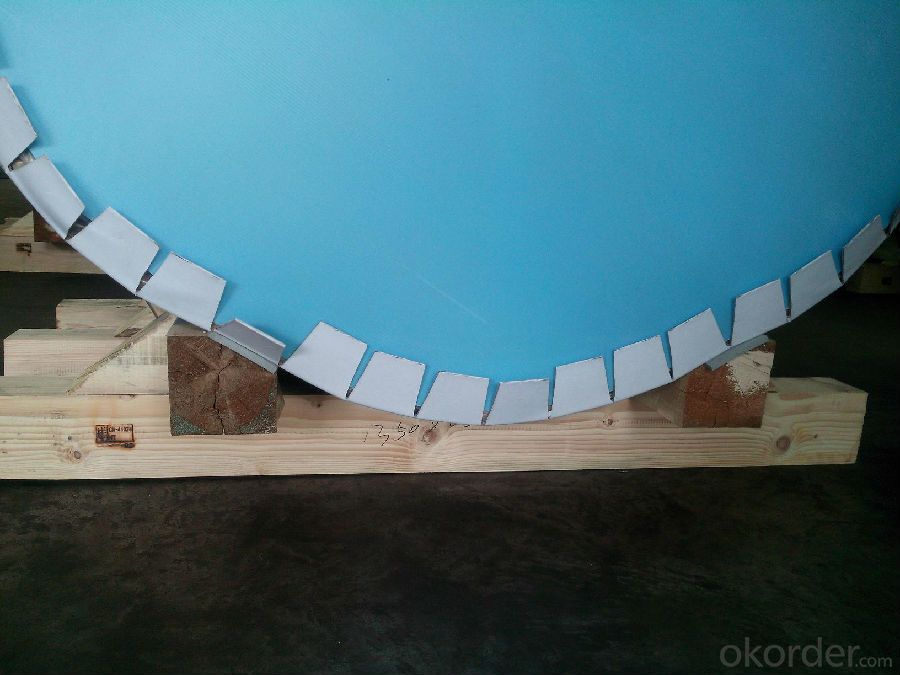
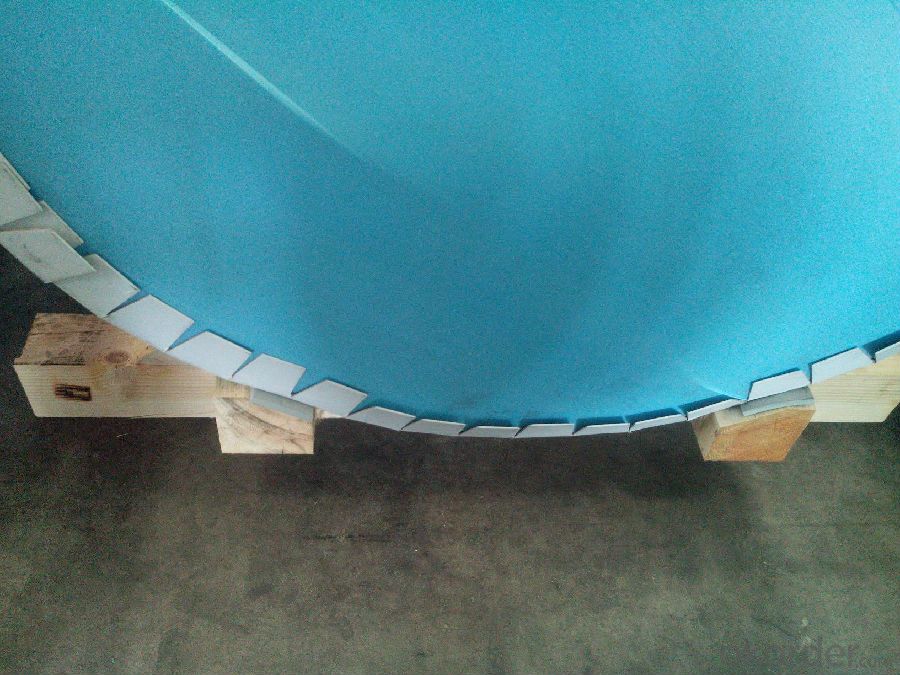
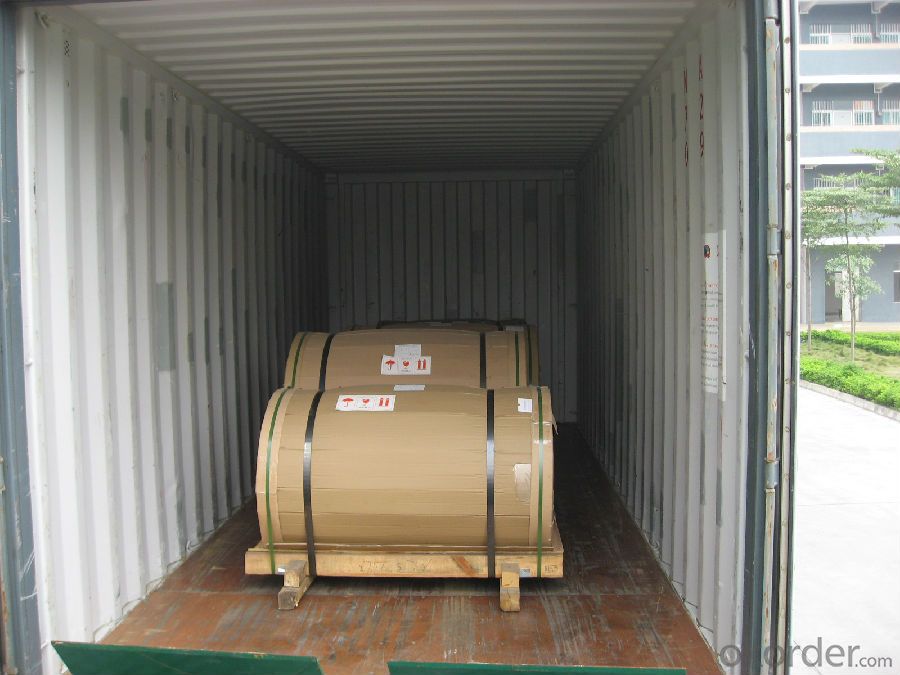
4. Product Specification ofMill Finished Aluminium Coils for Wall Decoration AA3003
| Alloy | Temper | Thickness | Width | Coil Weight |
| AA1100 | H18 | 0.2MM-3MM | 1000MM-1800MM | 2 TONS-5TONS |
5.FAQ of Mill Finished Aluminium Coils for Wall Decoration AA3003
What is the quality standard?
---Usually our standard is GB3880-2006
What is the largest width?
---It is 2300mm
What is the MOQ?
---Usually we can accept 80 tons.
- Q: Can aluminum sheets be coated with other materials?
- Yes, aluminum sheets can be coated with other materials. This process is known as aluminum sheet coating or aluminum sheet finishing. Coating aluminum sheets with other materials serves multiple purposes, such as enhancing their appearance, protecting against corrosion, improving durability, and providing insulation. There are various methods to coat aluminum sheets, including painting, anodizing, laminating, and powder coating. Each method offers different benefits and is chosen based on the desired outcome and intended use of the coated aluminum sheet. Coating aluminum sheets with other materials allows for customization, versatility, and increased functionality in a wide range of applications, including construction, automotive, aerospace, and consumer goods industries.
- Q: As for graphite and aluminum sheet, which one has a better thermal conductivity?
- aluminum sheet
- Q: Explain the pros and cons of utilizing aluminum sheets in the construction of car body panels.
- <p>Aluminum sheets offer several advantages for car body panels, such as reduced weight, which can improve fuel efficiency and handling. They also have high resistance to corrosion, enhancing the vehicle's durability. Additionally, aluminum is easier to recycle, contributing to environmental sustainability. However, there are downsides, including higher cost compared to steel, which can affect the vehicle's price. Aluminum is also less malleable, making it more challenging to repair after accidents, potentially leading to higher repair costs. Furthermore, aluminum's lower strength compared to steel can necessitate thicker panels to achieve the same structural integrity, which may offset some of the weight savings.</p>
- Q: Can 101 aluminum sheets be perforated?
- Yes, 101 aluminum sheets can be perforated.
- Q: How are aluminum sheets cleaned and maintained?
- Aluminum sheets can be effectively cleaned and maintained with a few simple steps. To begin, it is important to remove any loose dirt or debris from the surface of the sheets. This can be done by using a soft brush or cloth to gently sweep away the particles. Next, a mild detergent solution can be prepared by mixing a small amount of dish soap or a specialized aluminum cleaner with warm water. This solution should be applied to the sheets using a soft sponge or cloth. It is important to avoid using abrasive materials or cleaners that contain harsh chemicals, as these can cause damage to the aluminum surface. After applying the detergent solution, the sheets should be thoroughly rinsed with clean water to remove any residue. It is important to ensure that all soap or cleaner is completely removed, as any remaining residue can lead to staining or discoloration over time. Once the sheets are clean, they should be dried using a clean, soft cloth or towel. This will help to prevent water spots or streaks from forming on the surface. It is important to avoid using abrasive materials or rubbing too vigorously, as this can scratch the aluminum. In terms of maintenance, it is recommended to regularly inspect the aluminum sheets for any signs of damage or corrosion. If any areas are found to be damaged, they should be repaired or replaced as soon as possible to prevent further deterioration. Additionally, it is beneficial to apply a protective coating to the aluminum sheets. This can be done using a specialized aluminum sealant or a clear lacquer. This coating will help to protect the surface from environmental factors such as moisture, sunlight, and pollutants. Overall, cleaning and maintaining aluminum sheets involves regular gentle cleaning with a mild detergent solution, thorough rinsing, and drying with a soft cloth. Additionally, inspecting for damage and applying a protective coating can help to prolong the lifespan and appearance of the sheets.
- Q: What are the different surface finishes for aluminum sheets in the aerospace industry?
- In the aerospace industry, aluminum sheets are commonly used in the construction of aircraft structures due to their lightweight and high strength properties. To enhance their durability, protect against corrosion, and improve aesthetic appeal, various surface finishes can be applied to aluminum sheets. One of the most commonly used finishes is anodizing, which involves electrolytically coating the aluminum with a protective oxide layer. This process not only improves corrosion resistance but also provides a range of color options and enhances the sheet's ability to accept adhesives. Another popular finish is alclad, which involves bonding a thin layer of pure aluminum to both sides of an alloy sheet. This not only provides excellent corrosion resistance but also allows for better bonding with composite materials. In addition to anodizing and alclad, other surface finishes used in the aerospace industry include chemical conversion coatings, which provide corrosion resistance and improve paint adhesion, and mechanical finishes such as grinding or brushing, which can be used for aesthetic purposes or to prepare the surface for further treatment. Furthermore, some specialized finishes are employed for specific applications. For instance, in areas where high wear resistance is required, hard anodizing can be used to create a durable, wear-resistant surface. For parts that require low friction or high lubricity, a Teflon coating or dry film lubricant can be applied. The choice of surface finish for aluminum sheets in the aerospace industry depends on the specific requirements of the application, including factors such as corrosion resistance, adhesion properties, wear resistance, and aesthetic preferences.
- Q: Is aluminum suitable for projects with heavy traffic or frequent use?
- <p>Yes, aluminum sheets can be used in projects that involve high levels of traffic or heavy use. Aluminum is a lightweight, durable, and corrosion-resistant material. It can withstand significant wear and tear, making it suitable for high-traffic areas. Additionally, aluminum is easy to maintain and can be recycled, which is beneficial for long-term projects. However, it's important to consider the specific grade of aluminum and its thickness to ensure it meets the required strength and durability for your project.</p>
- Q: How to clean the engine oil and kerosene on the surface of aluminum sheet?
- it will disappear after rubbing with petrol.
- Q: What are the safety concerns to be aware of when handling aluminum sheets?
- <p>When working with aluminum sheets, there are a few safety concerns to consider. First, aluminum dust can be a respiratory hazard, so it's important to use proper ventilation and personal protective equipment like masks. Second, sharp edges can cause cuts; always handle aluminum sheets with gloves and proper tools. Additionally, aluminum is a good conductor of electricity, so avoid contact with live electrical wires. Lastly, when cutting or shaping aluminum, eye protection is crucial due to the risk of flying debris. Always follow safety guidelines specific to your workplace and the tools you are using.</p>
- Q: Can aluminum sheets be painted after installation?
- Yes, aluminum sheets can be painted after installation.
Send your message to us
Checkered Aluminum Sheets - Mill Finished Aluminium Coils for Wall Decoration AA3003
- Loading Port:
- Shanghai
- Payment Terms:
- TT OR LC
- Min Order Qty:
- 5 m.t.
- Supply Capability:
- 5000 m.t./month
OKorder Service Pledge
OKorder Financial Service
Similar products
Hot products
Hot Searches
Related keywords
